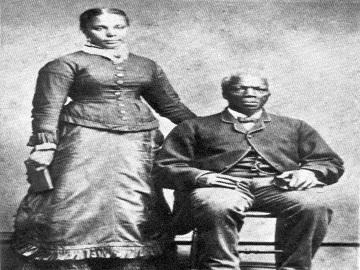
Section Branding
Header Content
Forgotten Women Part 8: Mosianna Milledge
Primary Content

Mosianna Milledge had the humblest of beginnings. She was born a slave in the mid 1800’s.
Many have never heard of Milledge but those who have like Kathyrn White, an advisor at the Juliette Gordon Low Birthplace, are intrigued by her accomplishments and booming persona.
"Our curator Cheryl Lang and I were doing research here to try and find out more about the people who worked here," said White. "The enslaved workers and later paid servants who worked for the Gordon’s here at this house. And things started to turn up about this very interesting sounding woman named Mosianna Milledge who had cooked for Juliette Low after she was married and moved to England, and I got a little sidetracked."
In Milledge's lifetime she went from a slave to a maid to an accomplished chef who owned multiple pieces of property, which was uncommon for an African American at the time.
She moved into her role as cook when the family realized Milledge had a special talent for cuisine. And when the newly married Lowe’s, vacationed to London, Milledge boarded a ship and introduced her Southern cooking to England’s elite.
"She taught a very well known cook in England named Rosa Lewis, how to cook her Southern style African American style dishes, so she could cook them for Prince Edward the 7th could enjoy them in Juliette Low’s English home," White informed.
Mosianna Milledge with her curated hams, okra and sweet potatoes was a hit, and White said she became somewhat of a celebrity amongst the crowd.
"She’s a very interesting example of someone making a way for herself under really difficult circumstances in a world that changing really fast. Umm when that kind of talent was less valued than we do now.We’re all fascinated by cooks and put them up on pedal stools. It was less easy to become a cooking celebrity I think back then.
How unusual was that? To be an African American cook in an English great house. What were her conversations like with Rosa Lewis because in some ways they had so much in common."
Under Milledge’s tutelage, Rosa Lewis the British cook who also rose to head cook after starting her career as a maid, gained favor with London’s elite.
A book written about her life called The Duchess of Jermyn St. has this passage:
"Mosianna initiated her into the secrets of making perfect rice and gave her many recipes for Southern cooking.She learned how to make waffles which were served with hot maple syrup from Vermont- an innovation to London society."
And In 1976 the BBC released a Duchess on Duke Street, a TV show chronicling her rise to fame through cooking. A sound byte from the character based on Rosa Lewis:
“I’ll work myself to the bone I won’t stink nothing if you’ll teach me. I love cookin’ I really do.”
Christiane Lauterbach is a food columnist in Atlanta who specializes in Southern cuisine. She says when Milledge introduced her brand of cooking overseas she passed along important cooking techniques that originated in the South.
"Alot of the preserving techniques, jam making, jellies all of this homemade housemade it was very important in an agrarian society."
She’s originally from France and knows first hand the importance of cultural exchanges through food.
"I had never heard of frying chicken. I was like 30 years old before I even conceived what does it mean frying a chicken? We didn’t fry chicken. Sweet potatoes we did not eat corn is something we only fed to animals, we did not grow sweet corn...People are interested in Southern food because of the terrific use of vegetables. The fact that Southerners cook vegetables with cured meat. That is very topical as well as historic."
No one knows the exact date Milledge died but she was buried beside her husband Thomas in Savannah’s Laurel Cemetery.
Kathyrn White spoke about her husbands's reputation.
"Tom her husband was twenty years older and quite important in the Savannah African American community."
So important that he was honored with a monument in the cemetery where he and Milledge are buried. While you have to search that cemetery to find Mosiana’s grave – it’s unmarked and overshadowed by the monument to her husband -- the cultural connection she created through food is alive and thriving to this day.
